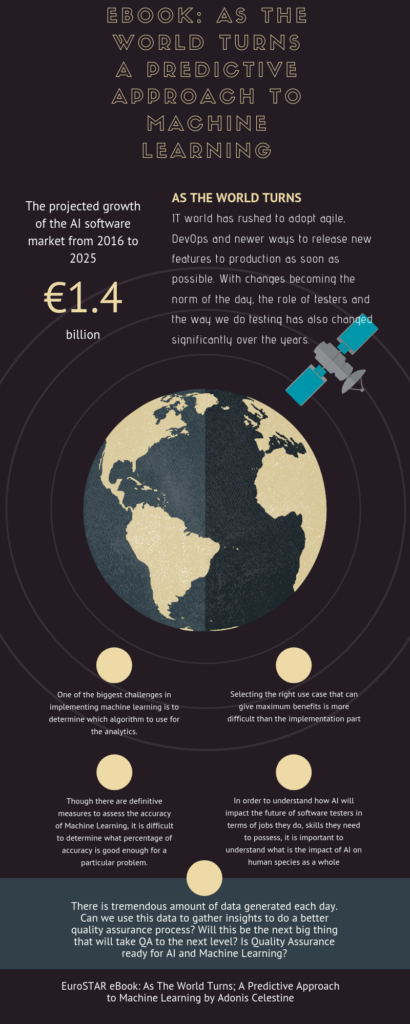As the world turns, IT world has rushed to adopt agile, DevOps and newer ways to release new features to production as soon as possible. With changes becoming the norm of the day, the role of testers and the way we do testing has also changed significantly over the years.
Get Your Copy HERE
In the Waterfall world, quality assurance had predominantly been reactive i.e. Testing was done only after the software was made. With the advent of agile and DevOps, we did become more proactive in doing much of the preparatory work for testing before the software was already made. Thanks to Test Driven Development and Behavior Driven Development we were able to shift certain quality processes to the left.
But the complete shift left of quality process we had been passionately talking about for years did not happen yet. This is probably because we are dependent on the software being made before we can check the quality of it. May be the entire nature of our job prevents us from moving our activities up the life cycle.
The projected growth of the AI software market from 2016 to 2025 is €1.4 billion
In the Waterfall world, quality assurance had predominantly been reactive i.e. Testing was done only after the software was made. With the advent of agile and DevOps, we did become more proactive in doing much of the preparatory work for testing before the software was already made. Thanks to Test Driven Development and Behavior Driven Development we were able to shift certain quality processes to the left.
But the complete shift left of quality process we had been passionately talking about for years did not happen yet. This is probably because we are dependent on the software being made before we can check the quality of it. May be the entire nature of our job prevents us from moving our activities up the life cycle.
With the advancement in AI technologies like Machine Learning, Natural Language Processing, etc. it is now possible to predict the quality of the software even before the coding is done. In predictive quality assurance, historical data of past failures is analyzed to derive insights and make predictions on the quality of software.
This paper discusses in detail the experiences and ways of using AI technologies to achieve the much needed predictive and cognitive quality assurance.
The paper also presents a point of view on how as testers we can test the intelligent machines and what would be the impact of AI on our jobs and our life as a tester as the world turns.

